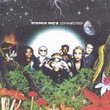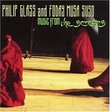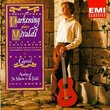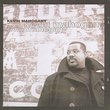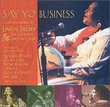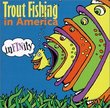| All Artists: Mort Weiss, Sam Most Title: Mort Weiss Meets Sam Most Members Wishing: 0 Total Copies: 0 Label: Sms Jazz Original Release Date: 1/1/2006 Re-Release Date: 8/8/2006 Genres: Jazz, Pop Styles: Cool Jazz, Bebop Number of Discs: 1 SwapaCD Credits: 1 UPC: 783707377704 |
Search - Mort Weiss, Sam Most :: Mort Weiss Meets Sam Most
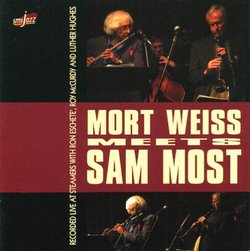 | Mort Weiss, Sam Most Mort Weiss Meets Sam Most Genres: Jazz, Pop
|
Larger Image |
CD DetailsSimilarly Requested CDs
|
CD ReviewsWho needs to rehearse? (It's all about knowing the traditio Samuel Chell | Kenosha,, WI United States | 10/04/2006 (4 out of 5 stars) "Veteran clarinetist Mort Weiss and multi-woodwind player Sam Most, remembered by many as a flautist extraordinaire on the 1950s West Coast scene, prove on this thoughtful exchange that they no longer need to prove anything. What they have to say, even though a familiar story, bears repeating with raconteurs of this caliber.
Weiss's is certainly the most heartening tale. Hounded and eventually overcome by various addictions, he dropped out of music entirely in the early 1960s, only to emerge sounding fitter and fresher than ever after a 35-year hiatus from his clarinet. His post-bop harmonic ideas, delayed articulations, and slightly behind-the-beat phrasing are reminiscent of Tony Scott while his woody and cured tone, varied vibratos and pitch bends, are apt to make a listener think of Eddie Daniels. On the opener--Miles Davis' "Four" (would even "Satin Doll" have been a more obvious, thread-worn choice?)--Weiss grabs the listener's attention during his solo with a quote from "Jitterbug Waltz," anticipating his fuller, near-virtuosic treatment of the same tune a bit later. Sam Most surprises, first, by going with tenor sax on the program's first three selections and, second, by employing a sound that is closer to that of Weis' clarinet than to virtually any other tenor player who comes to mind. It's when Most goes to his flute that the space separating him from more extrovertish tenor players as well as from his own early recordings all but vanishes. His solo on "Jitterbug Waltz" is nearly the equal of Weis's in virtuosity and melodic ideas, while he chases away any trace of languor and sentiment from "Poor Butterfly" with a spirited, energetic solo that finds him double-tonguing while doubling the time and humming along with the sound of his flute. During the program's first three tunes, much of the interest comes from the Jim Hall-influenced guitar artistry of Ron Eschete, who inserts brief single-note patches primarily to set off the singular beauty of his chorded solos. His turn on "I'm Old Fashioned" is representative of what's to come: harmonized solos that never sacrifice clarity of line to overly crowded textures on the seven-string instrument and that employ voice-leading so judiciously there's rarely a forced moment or shaky transition in the harmonic narrative provided by guitar in its role as either accompanying or solo voice. As previously stated, these are musicians who have nothing to prove, but if some is required, they provide it with a closing "Donna Lee" taken at a tempo that's not a nanosecond slower than Wynton Marsalis' performance of the tune on last year's "Live at the House of Tribes." Younger musicians who still have the "garage band" mentality that seems to afflict most rock ensembles and many jazz-fusion aggregations, might do well to use this recording as an example of what can be accomplished by just five, probably unrehearsed, musicians who know the tradition along with some popular "Real Book" tunes. This is a recording that retains the spontaneity of a jam session while distinguishing itself from most such affairs because of players who clearly know when to talk and when to listen." |

 Track Listings (9) - Disc #1
Track Listings (9) - Disc #1
